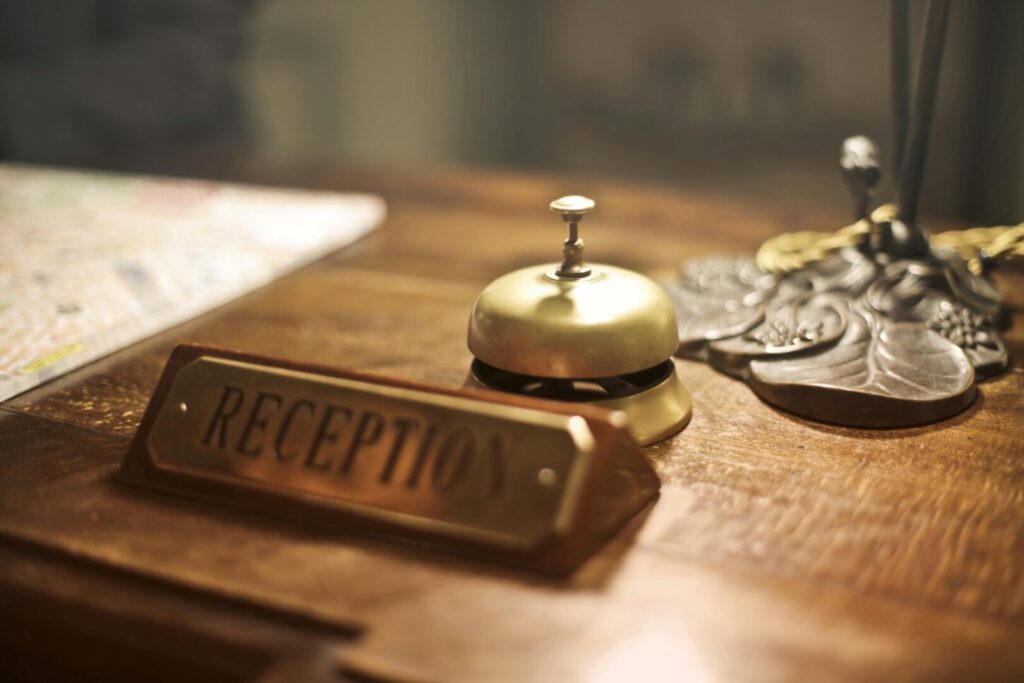The hospitality industry is entering a new era where competition is intensifying, guest expectations are shifting more rapidly than ever, and digital behavior is evolving every three to six months. Hotels that ignore these changes will begin to see a dramatic decline in bookings, profitability, and long-term customer loyalty. Many hotel owners are already asking the same critical question: why are hotels losing bookings?
The answer is no longer tied to traditional factors, such as location or room availability. In 2026, hotels lose bookings because they fail to adapt to modern marketing, evolving traveler psychology, and the new digital ecosystem that shapes where and how people book their stays. Those who continue operating with outdated strategies will see their competitors rise above them in search results, social media platforms, online travel agencies, and even through word-of-mouth referrals.
This article explores the core issues holding hotels back and explains exactly what needs to change before 2026 arrives. The solutions are not complicated, but they require a shift in mindset, consistency, and a deep understanding of how digital visibility works today. It also highlights how boutique agencies like Josei, specializing in digital and Pinterest marketing for lifestyle, travel, and hospitality brands, can help hotels future-proof their booking flow and build long-term demand.

The Silent Booking Killer: A Lack of Modern Marketing Investment
Many hotel owners still treat marketing as an optional extra – something to do only during slow months or high-traffic seasons. However, the digital world no longer waits for anyone. Travelers are constantly flooded with choices, new accommodations, Airbnb updates, trendy retreats, and lifestyle travel brands that aggressively promote themselves every single day. If a hotel is not showing up in front of these audiences consistently, it becomes invisible, even if the property itself is excellent.
This is one of the main reasons why hotels are losing bookings. They do not invest in being visible where people already spend their time. In 2026, visibility is currency. If you are not in front of your audience, you do not exist. The era of passive marketing is over, and relying only on booking platforms is no longer enough. Hotels must integrate a complete marketing ecosystem: social media, SEO, website optimization, content, and paid advertising. Each channel supports the other, creating a digital presence strong enough to compete.
To understand the future, hotels must analyze their competitors regularly. Competitors are no longer just next-door hotels; they are global boutique hotels, villa rentals, short-term apartments, and niche retreats that appeal directly to specific traveler profiles. These brands do not wait for opportunities – they create them. They study trends, adapt quickly, and invest heavily in content and ads. If your competitors are showing up in search results, on TikTok, on Instagram Reels, and on Pinterest every day, and you’re posting once a month, the difference becomes obvious. Bookings start shifting toward the ones who stay visible.
A consistent, strategic marketing presence is no longer optional. It is the foundation of survival in 2026.
Outdated Social Media Presence and Websites Are Costing Hotels Thousands
Many hotels underestimate how quickly guests judge them online. An outdated website or inactive social media page is one of the fastest ways to lose trust and bookings. Travelers equate digital presence with quality, professionalism, and the overall experience they expect upon arrival. If your social media looks neglected, potential guests assume your service will be the same.
This explains another major reason why hotels are losing bookings: they fail to keep up with the digital standards travelers now expect. A website from 2017 is no longer acceptable. Grainy Instagram photos, poorly formatted captions, or slow-loading pages drive visitors away within seconds. Modern travelers, especially Gen Z and Millennials, expect a smooth and visually appealing online experience. They want seamless navigation, fast-loading mobile pages, updated room visuals, and real-time social proof.
Hotels that refresh their online presence experience significantly higher conversion rates. A modern website with strong SEO signals to search engines that the property is relevant. Updated social media pages show travelers that the hotel is active, professional, and trustworthy. Together, these elements create an environment where potential guests feel confident enough to book.
Hotels that neglect these essentials will suffer the consequences in 2026 as digital expectations rise even further.
The Era of Static Photos Is Over: Hotels Must Embrace Video Content
The days when hotels could rely solely on photos are gone. Today’s travelers expect immersive, dynamic videos that show them exactly what they can experience. TikTok, Instagram Reels, and YouTube Shorts dominate the travel discovery process, influencing where travelers decide to go long before they search for availability. Video content is now the most powerful storytelling medium in hospitality.
Yet many hotels continue to invest only in photo shoots, ignoring the platforms that prioritize video. This disconnect is one of the hidden reasons why hotels are losing bookings. Without videos, hotels fail to capture attention in a digital world built around motion, authenticity, and emotional engagement.
Travelers want to see room tours, spa walk-throughs, dining experiences, behind-the-scenes moments, cultural highlights, and genuine guest experiences. They want real footage, not just perfectly staged images. The lack of video content makes hotels appear outdated and less appealing than competitors who are already thriving on video-first platforms.
Hotels must understand that video content does not require a massive budget – only consistency and creativity. Short, authentic clips often outperform large-scale productions. The key is to show movement, emotion, and atmosphere. When travelers can visualize themselves in your hotel, a booking becomes a natural next step.
Ignoring video in 2026 is one of the biggest revenue mistakes hotels can make.

Destination Marketing Will Define the Winners of 2026
Hotels are no longer booked solely for the rooms they offer. They are booked for the experience surrounding the destination. Modern travelers choose destinations first, accommodations second. This shift has made destination marketing one of the most critical strategies for increasing bookings.
However, many hotels focus only on promoting their rooms, amenities, or facilities. They forget that people want to be inspired by the city, the nature, the culture, the food, and the hidden gems around them. When a hotel does not showcase the value of its location, it becomes just another building among many. This is another major factor behind why hotels are losing bookings.
Hotels that embrace destination storytelling stand out dramatically. They become guides, not just hosts. They turn their online presence into a travel portal – offering insider recommendations, curated itineraries, seasonal insights, and must-see highlights. They position themselves as the key to unlocking the best version of the destination.
By incorporating local culture, events, attractions, and partnerships into their content, hotels create a sense of connection and aspiration. Travelers begin to associate their journey with the hotel itself, turning it into part of the destination rather than an afterthought.
In 2026, destination marketing will be one of the strongest booking drivers, and hotels that overlook it will fall behind.
The Demand for Exceptional Customer Service Is Higher Than Ever
In a world where everything is digital, human interaction has become even more valuable. Travelers have higher expectations for service than ever before, and hotels that fail to meet these expectations risk losing their reputation and their bookings.

Customer service is no longer limited to interactions during a stay. It begins the moment a potential guest discovers your hotel online. This includes response times on social media, email communication, live chat support, booking assistance, and even how quickly questions are answered on messaging apps. Slow responses or generic replies create frustration, leading travelers to book elsewhere.
This behavioral shift explains another core reason why hotels are losing bookings: they underestimate the impact of communication quality. Guests expect personalization, fast replies, and a sense of care long before they check in. They want to feel valued, appreciated, and accommodated. When a hotel provides exceptional service from the first touchpoint, trust builds instantly.
Consistency is key. Staff must be trained not only to solve issues but to anticipate needs. Little details – like greeting repeat guests by name, offering tailored suggestions, or remembering preferences – can transform an ordinary stay into a memorable one. Exceptional service turns guests into loyal advocates who return often and recommend the hotel to others.
Hotels that elevate their customer service standards will thrive in 2026. Those who don’t will lose ground quickly.
Irresistible Add-Ons and Packages Will Determine Conversion Rates
Modern travelers are not simply looking for a room; they are seeking value, experience, and personalization. Hotels that fail to offer thoughtful packages or appealing add-ons miss opportunities to increase both bookings and revenue. Add-ons are not just upsells; they are emotional triggers that make guests feel excited and taken care of.
This gap in offering attractive, unique packages is yet another reason why hotels are losing bookings. Travelers crave experiences tailored to their interests – wellness retreats, romantic escapes, foodie weekends, adventure bundles, cultural tours, or seasonal experiences. These curated offerings help hotels stand out while providing guests with something more compelling than a basic stay.
When hotels create packages that feel exclusive, thoughtful, and hard to resist, the decision-making process becomes significantly shorter. Guests feel they are getting more for their money, and the booking becomes easier to justify. Even simple add-ons such as airport transfers, spa discounts, dining credits, or early check-in privileges can dramatically increase perceived value.
By designing packages that align with traveler motivations, hotels can elevate their booking rate, increase revenue, and strengthen loyalty. In 2026, personalization will be essential, and hotels that continue offering generic stays will see a steep decline in demand.
The Most Critical Strategy for 2026: Join Pinterest Immediately
While many hotels focus on Instagram or TikTok, one of the most powerful platforms for long-term travel bookings remains overlooked: Pinterest. This is one of the biggest missed opportunities in hospitality and one of the most surprising reasons why hotels are losing bookings.
Pinterest is where travelers plan their trips months in advance. They create boards dedicated to destinations, itineraries, dream hotels, and travel experiences. Unlike other platforms, Pinterest is not driven by trends that disappear within hours. It is a long-term search engine where content continues to bring traffic for years.
Hotels that are not on Pinterest are losing visibility to competitors who are already capturing organic demand. Pinterest users are planners, and planners become bookers. This makes the platform a goldmine for the hotels that know how to use it properly. Beautiful imagery, video pins, destination content, room highlights, and curated boards can dramatically increase visibility and bookings.
This is where Josei, a boutique digital and Pinterest marketing agency, can elevate a hotel’s entire marketing strategy. Josei helps hotels transform their existing content into high-performing Pinterest assets, optimize their accounts, implement keyword strategies, design pin templates, and maintain consistency that drives long-term organic traffic. Hotels that partner with specialized agencies like Josei gain a significant competitive edge in 2026 and beyond.
Pinterest is not optional anymore. It is the future of travel planning, and hotels that ignore it will fall far behind.
The Hotels That Adapt Will Win 2026

The hospitality landscape is changing rapidly, and the hotels that succeed are the ones that understand the power of modern marketing, digital presence, video content, destination storytelling, customer experience, tailored offerings, and Pinterest strategies. The question is no longer why hotels are losing bookings but what they are willing to change to stop the decline.
The solutions exist, the opportunities are abundant, and the digital world favors those who act quickly. As 2026 approaches, hotels must embrace a full transformation if they wish to remain competitive. Whether through strategic content, updated branding, immersive videos, curated packages, or Pinterest excellence, the time to act is now.
Hotels that evolve will not only maintain their bookings – they will grow exponentially. Those who don’t will watch their bookings fall to competitors who understood the assignment.



